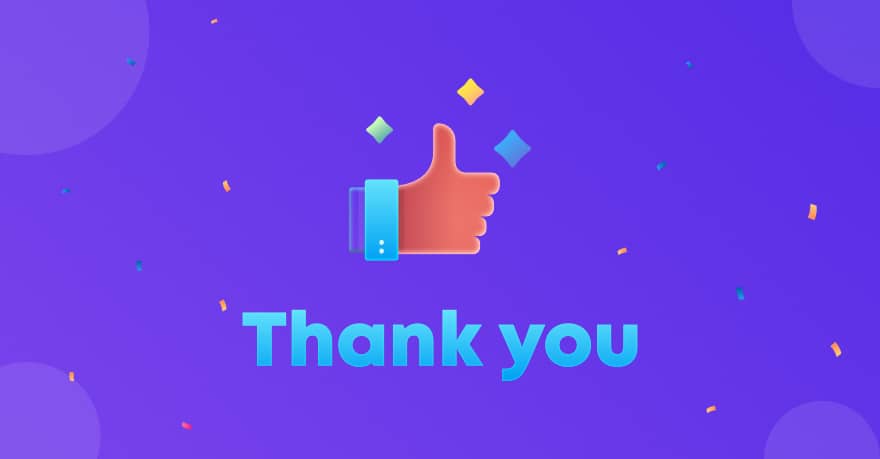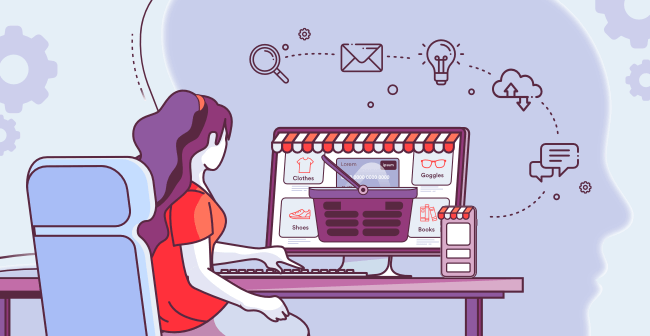Finding the right employee has always been critical to an organization's success. It has become even more crucial in today's fiercely competitive job market. However, recruiters need more qualified candidates and growing demand for specific skills. These challenges make it more complicated to identify the perfect candidate for a role.
The Challenges of Recruiting Today
One of the most significant challenges recruiters face is sifting through a vast pool of applicants to find the best-suited candidate for a particular position. The interview process can also be time-consuming and expensive, and it's crucial to ask the right questions to assess each candidate's skills and personality and fit within the company's culture. Moreover, providing a positive candidate experience is imperative as it can affect the organization's reputation in the digital world. Conversely, a negative experience can damage the employer's brand, which is costly to repair.
This article aims to explore these challenges and provide practical solutions for recruiters to overcome them. We'll emphasize human-driven approaches prioritizing the candidate's experience while streamlining the recruitment process. By implementing these strategies, recruiters can identify the most qualified candidates and ensure their recruitment process fosters a positive employer brand.
How Does ChatGPT Work?
In today's dynamic business landscape, companies are always looking for innovative technologies that give them a competitive edge. One such tool gaining popularity is the AI-powered chatbot, ChatGPT.
ChatGPT is a sophisticated chatbot that leverages natural language processing to converse with users. Its vast online content repository makes it a versatile solution for various industries, making it ideal for businesses seeking to enhance their operations.
Businesses can use ChatGPT to obtain information on various topics, including customer service, marketing, and human resources. In addition, its ability to process information quickly and accurately makes it a valuable tool for recruiters searching for top talent.
Recruiters can use ChatGPT to inquire about a candidate's background, education, and expertise and receive insightful responses in real time. This chatbot is especially useful for remote work and virtual recruitment, which have recently gained popularity. With ChatGPT, recruiters can conduct virtual interviews and communicate with candidates, regardless of location.
ChatGPT's versatility and adaptability make it a valuable asset for recruiters looking to stay ahead of the curve. Its ability to adapt to new contexts and information enables recruiters to optimize their sourcing process, enhance productivity, and offer a superior candidate experience. By leveraging ChatGPT, businesses can enhance their recruitment process and achieve better outcomes.
How To Use ChatGPT For Sourcing Candidates?
Recruiting top talent can be time-consuming and challenging, but artificial intelligence is transforming how companies find and engage with potential candidates. One such tool is ChatGPT, an AI-powered chatbot that uses natural language processing and machine learning algorithms to generate customized messages for each candidate.
To take advantage of ChatGPT's capabilities, recruiters can provide specific prompts about their organization, open positions, and desired qualifications. This allows ChatGPT to create personalized messages highlighting a candidate's relevant skills and experience. For example, if a recruiter is seeking a software engineer with expertise in Java and Python, ChatGPT can craft a message emphasizing those abilities.
There are also candidate sourcing tools that have integrated AI capabilities similar to ChatGPT. These platforms use language generation capabilities and data aggregation across LinkedIn, GitHub, and Crunchbase to identify and connect with highly qualified candidates. Recruiters can send personalized messages to these candidates, providing an efficient way to secure top talent.
Μεταξύ των προδιαθεσικών παραγόντων θα πρέπει να επισημανθεί η γενική μείωση της ανοσίας, η παραβίαση των διαδικασιών παροχής αίματος λόγω της καθιστικής ζωής farmakeioena. Επίσης, μην ξεχνάτε την προσωπική υγιεινή και το γεγονός ότι είναι απαραίτητο να αδειάζει εγκαίρως η ουροδόχος κύστη. Τις περισσότερες φορές η ασθένεια εμφανίζεται κατά την εαρινή περίοδο.
By using AI-powered chatbots and sourcing tools like ChatGPT farmakeioena, recruiters can simplify the sourcing process, save time and money, and improve the candidate experience. In addition, streamlining the sourcing process allows recruiters to focus on other critical tasks and achieve better business outcomes.
Improving The Screening Process With ChatGPT
Hiring the right people is vital for any business's success, but sifting through numerous resumes can overwhelm recruiters. Luckily, with ChatGPT's advanced natural language processing and machine learning capabilities, recruiters can screen candidates quickly and efficiently.
ChatGPT simplifies the screening process by extracting relevant information from resumes. By inputting a resume, recruiters can request specific information about the job requirements. For example, if a recruiter is seeking a candidate with marketing experience, they can input this requirement, and ChatGPT will identify relevant skills and experience from the candidate's resume. Here are some examples of prompts that can help recruiters:
- "Please extract all relevant marketing experience and skills from this resume."
- "Identify all relevant programming languages and software experience from this resume."
- "Can you extract relevant leadership experience and skills from this candidate's resume?"
Moreover, ChatGPT can provide valuable insights to help recruiters make informed decisions. By analyzing data such as job performance and social media activity, ChatGPT can offer insights into a candidate's suitability for a role. This can help recruiters prioritize candidates with the most relevant experience. Here are some examples of prompts that can help recruiters:
- "Provide insight into a candidate's potential for success in this role based on their past job performance."
- "Prioritize candidates with the most relevant experience for this role based on their resumes and job history analysis."
- "Can you offer insights on this candidate's ability to work in a team based on their social media activity and past job history?"
In conclusion, ChatGPT's natural language processing and machine learning capabilities are revolutionizing recruitment by allowing recruiters to screen candidates efficiently and prioritize the best candidates. With ChatGPT's language generation capabilities, recruiters can streamline their recruitment process and make data-driven decisions that result in successful hires.

ChatGPT For Interviews
Hiring the right people is critical to the success of any business. However, sifting through numerous resumes can take time and effort for recruiters. Fortunately, ChatGPT's advanced natural language processing and machine learning capabilities enable recruiters to screen candidates quickly and efficiently.
ChatGPT simplifies the screening process by extracting relevant information from resumes. Recruiters can input a resume and request specific information pertinent to the job requirements. For example, suppose a recruiter seeks a candidate with marketing experience. In that case, they can input this requirement into ChatGPT, and the AI will identify relevant expertise and skills from the candidate's resume. Here are some examples of prompts that can help recruiters:
- "Extract all relevant marketing experience and skills from this resume."
- "Identify all relevant programming languages and software experience from this resume."
- "Extract any relevant leadership experience and skills from this candidate's resume."
Moreover, ChatGPT can provide valuable insights to help recruiters make informed decisions. By analyzing data such as job performance and social media activity, ChatGPT can offer insights into a candidate's suitability for a role. This can help recruiters prioritize candidates with the most relevant experience. Here are some examples of prompts that can help recruiters:
- "Provide insight into a candidate's potential for success in this role based on their past job performance."
- "Prioritize candidates with the most relevant experience for this role based on their resumes and job history analysis."
- "Offer insights on this candidate's ability to work in a team, based on their social media activity and past job history."
In conclusion, ChatGPT's natural language processing and machine learning capabilities are revolutionizing recruitment by enabling recruiters to screen candidates efficiently and prioritize the best candidates. With ChatGPT's language generation capabilities, recruiters can streamline their recruitment process and make data-driven decisions that result in successful hires.
ChatGPT For Candidate Experience
In today's competitive job market, providing a positive and memorable candidate experience is essential for recruiters. AI-powered recruitment tools like ChatGPT streamline the recruitment process and improve candidates' experience.
With ChatGPT's advanced AI capabilities, recruiters can respond quickly and personally to candidates' inquiries, improving their engagement and satisfaction. By automating the process of addressing candidates' questions and concerns, recruiters can create a positive and engaging experience that may lead to better hiring outcomes. Here are some examples:
- "Assist me in crafting a message to update candidates on their application status and what they should expect in the next steps."
- "How can I communicate our company culture and values to candidates to improve their experience and encourage them to work with us?"
- "Generate a personalized message thanking candidates for their interest and time in the application process."
Furthermore, ChatGPT's AI technology can guide candidates through the application process, answer their questions, and provide feedback, creating a more user-friendly and efficient experience. This simplifies the application process, reducing candidates' time and effort and leading to a better candidate experience. Here are some examples:
- "Help me design an application process that is easy to navigate and user-friendly."
- "Provide candidates with feedback on their resumes and suggest ways to improve their chances of getting the job."
- "Generate a message that outlines the next steps in the hiring process and what candidates can expect."
In conclusion, ChatGPT's natural language processing and machine learning capabilities provide recruiters with the tools to enhance the candidate experience. By using AI to automate candidate inquiries, guide candidates through the application process, and provide feedback, recruiters can create a more positive and engaging experience that may lead to better hiring outcomes.

Things To Watch Out For
The integration of AI into recruitment processes offers several advantages for employers. However, it is crucial to consider the ethical implications that may arise. The potential introduction of bias, especially when using biased data to train the AI, is a significant concern. For example, if a company historically recruits from a particular educational institution or demographic, the AI may learn to do the same.
To mitigate this risk, one crucial to ensure that the data used to train AI systems is diverse and free of bias. Furthermore, it is important to monitor the decision-making process of AI systems and intervene if they produce biased results.
Another issue is that AI-powered recruitment processes may depersonalize the candidate experience, resulting in a lack of empathy. To avoid this, recruiters must use AI to enhance, not replace, human interaction. This includes offering candidates opportunities to communicate with recruiters and hiring managers and ensuring that candidates receive personalized feedback on their applications.
Moreover, AI may need to correct mistakes or misinterpretations, especially when assessing a candidate's fit or cultural alignment with a company. Although AI can automate many aspects of recruitment, human oversight is necessary to ensure fairness and accuracy.
Furthermore, using AI in candidate assessment and selection raises data privacy and security concerns. As AI tools gather and analyze significant amounts of personal data, recruiters must prioritize responsible and ethical collection and use of this information.
In summary, while AI offers numerous benefits to recruitment processes, it is essential to consider its ethical implications. To maintain ethical standards and provide a positive candidate experience, recruiters must ensure that AI is unbiased, used to enhance rather than replace human interaction, and transparently communicated to candidates.
Conclusion
AI-powered chatbots like ChatGPT have become an essential part of the recruitment process. The platform leverages natural language processing and machine learning capabilities to simplify the process of sourcing and screening top talent.
One of the significant advantages of ChatGPT is its ability to craft personalized messages to each candidate, ensuring that recruiters can effectively reach out to potential candidates with specific skills and qualifications. This personalized approach also increases the likelihood of receiving a response from candidates.
ChatGPT simplifies the screening process by allowing recruiters to input resume data and extract specific information required for the job. This saves recruiters time and enables them to identify top candidates efficiently. The platform has also made creating customized interview questions that align with each candidate's experience and skills easier. ChatGPT automates the evaluation of candidate responses, providing recruiters valuable insights into each candidate's strengths and weaknesses.
Another critical advantage of ChatGPT is its ability to enhance the candidate experience. Recruiters can automate the process of addressing candidate questions and concerns, making it a positive and engaging experience for the candidate. In addition, ChatGPT guides candidates through the application process, answers their questions, and provides feedback, reducing the time and effort candidates need to invest in the application process.
As the job market becomes increasingly competitive, recruiters must leverage AI-powered chatbots like ChatGPT to stay ahead of the curve. The platform's language generation capabilities and AI technology help recruiters enhance the recruitment process, improve the candidate experience, and ultimately achieve better business outcomes. In addition, the ability of ChatGPT to learn and adapt to new information and contexts makes it an invaluable asset to recruiters looking to optimize their recruitment process and make informed hiring decisions.















Leave a Reply